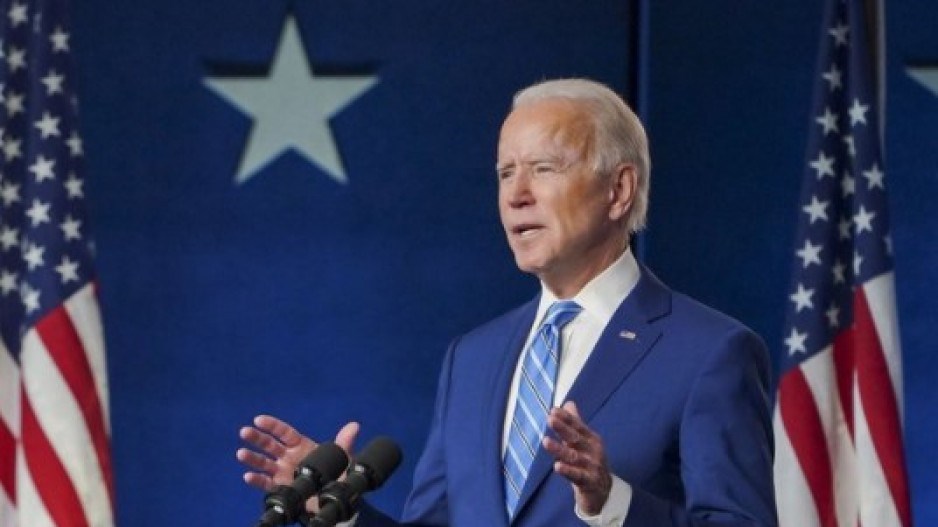Will 2021 signal a new stage for how Canada handles its Asia-Pacific relationships, given the return of a key ally – the United States – after four years of American protectionism and antagonism?
Experts say that could be the case, because many of Ottawa’s links to Asia are defined by the flow of trade and geopolitical interactions between the region and North America.
As the United States returns to a more co-operative stance with Japan and South Korea, it makes sense that Canada could “piggy-back” on Washington’s increased outreach efforts in Asia to strengthen Ottawa’s ties in the East, said one observer.
“The U.S. will be back in Asia much more actively,” said University of British Columbia political science professor Yves Tiberghien, who noted that the White House has appointed Kurt Campbell as Washington’s new Asia co-ordinator. Campbell is the architect of the U.S.A.’s pivot to Asia plan under Barack Obama in 2009.
“He is going to be all over the place, and there will be a lot of defence and security co-ordination. Canada, of course, will be part of that co-ordination – so if there’s an increased co-operation between Washington and Japan, then I’d expect a U.S.-Japan-Canada joint co-operation on those issues.”
One area where there will likely be broad agreement between the U.S., Canada and their allies is the establishment of clear rules surrounding digital/data security. Canada, Australia, New Zealand, the United States, the United Kingdom (the Five Eyes), some European players and Japan have already indicated they would support a regulatory system that would prevent sensitive data from falling into the hands of states like China.
But Tiberghien said it remains unclear how security and technology trends will paint Canada’s economic picture in Asia, and it may remain unclear for some time because U.S. openness to more trade is much more opaque than its openness to co-operation on security.
“People in the U.S. were displaced by trade,” Tiberghien said. “So they have some work to do, which will put some delays on any new trade agreements. … It’s hard to know what’s coming in terms of economic moves. In the short term, what we know is that [the White House] will be all over Asia, listening.”
There is also a risk of placing too much emphasis on how Ottawa’s Asia-Pacific policy will be swayed by the new White House regime, said Asia Pacific Foundation of Canada (APFC) vice-president of research Jeff Reeves.
He noted that Canada has been working hard to strengthen ties with markets like the Association of Southeast Asian Nations (ASEAN) while also taking a more active role in security alliances with Asia-Pacific democracies in recent years.
The economic component in the relations, however, could use a boost – and that’s where the piggybacking with the return of U.S. businesses to the Asia-Pacific (especially if it ties into the security framework mentioned above) may play the most significant role in Canada’s forays in the East.
“I’m not entirely sure how the Joe Biden administration’s approach to Asia will affect Canada’s relationship with a lot of these markets on the short term,” Reeves said. “Canada is not necessarily dependent on the United States in the way it engages. … The big criticism of Campbell’s pivot to Asia previously was that it lacked that economic component … and certainly, a more robust U.S. presence in places like Southeast Asia will provide Canadian firms with ties to the United States better market access.”
A big part of how Canada could advance its economic interests in Asia in 2021 will be how Washington’s new diplomatic ties with China play out.
While the United States is not expected to relax its hard-line positions against Beijing completely, Tiberghien said a decoupling of trade relations between the world’s two largest economies would not be supported by the Asian allies who will now have a bigger voice in White House policy directives.
“From places that I study closely such as Japan and South Korea, their input [to Washington] would be that they don’t think it’s possible to stop the rise of China,” Tiberghien said. “What they [Japan and South Korea] want is for China to follow the rules and preserve an order. That is not a decoupling; Japan is firmly opposed to that. Japan sends about 25% of its exports to China. For South Korea, it’s 30%. Taiwan’s number may be as high as 41%. So if these economies decouple from China, you are sacrificing your economy. What they want is a greater set of rules to frame engagement with China, as well as security hedges.”
Stewart Beck, APFC president and CEO and a former senior diplomat with extensive postings in India, China, and the United States, added that the general mood globally of an easier sense of communication between allies – of which Canada has many in Asia – could also mean that Ottawa has a chance to shine beyond the aforementioned security and economic components.
Some of these areas, he said, are the ones where Canada may be strongest and have the most to offer.
“Our role in the military component of these relationships is pretty small,” Beck said. “Where we can contribute is around areas where we have some global leadership. We are talking about machine learning and digital innovation. Food security will be critical, and we have leadership in those spaces, and that’s where we can add some real value – in areas of governance in these spaces.” •




